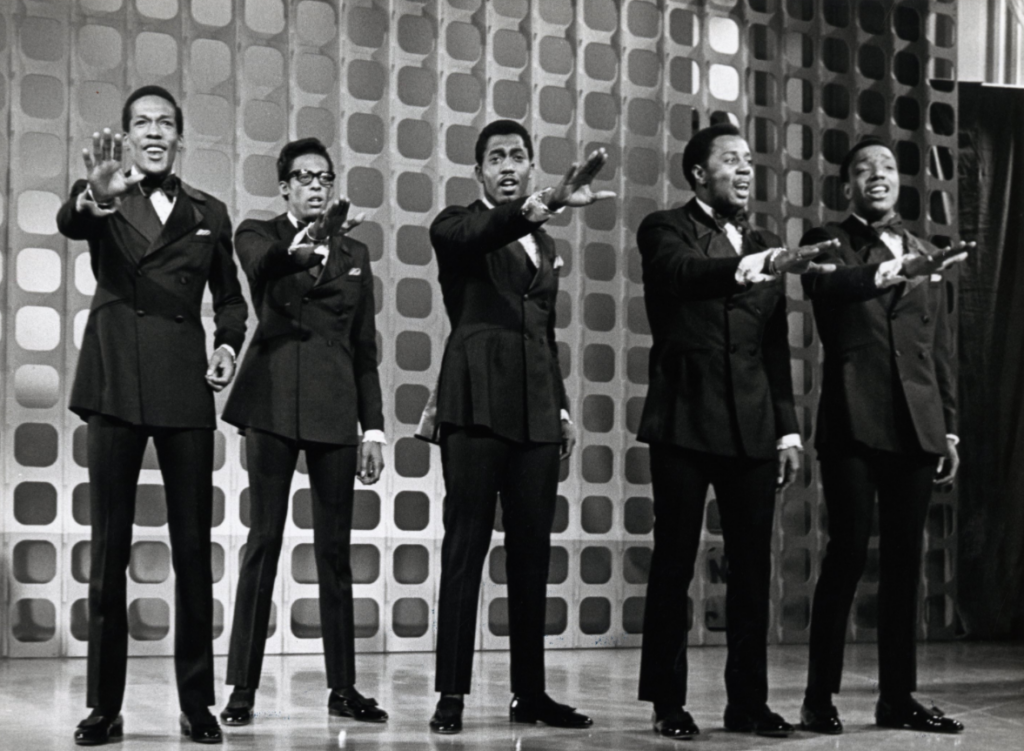Should You, Would You, Take on a Persona?
You may or may not know it, but you’ve taken on a persona at one point or another in your life. But why? Is this something you need or needed in the past?
You may or may not know it, but you’ve taken on a persona at one point or another in your life. But why? Is this something you need or needed in the past?
As this pandemic forces us to do our jobs in different ways, let’s hope we hold on to the efficient ways when we come out of this. You may have heard of the baked ham story. The one where the two ends of a ham are cut-off because the oven was too small to accommodate the ham so it had to be put in a smaller pan. Then, generations later as the famous family recipe was handed down, the “tradition” of cutting off the two ends of the ham continued. Nobody asked why. Maybe family members made up elaborate assumptions on how it affected the flavor or they had pure blind-integrity thinking. (But think of all those discarded ham ends that never got a chance to help clog arteries – a shame, really). It’s a good story to ask why and to also make a habit of doing it regularly. As a person who gets an involuntary eye spasm every time I see inefficiency, I have a small breath of relief seeing how companies and people are getting smarter in how they get their work done in light of the Shelter-In-Place. So for the love of Gilbreth (that is, Frank Bunker Gilbreth, famous efficiency expert, continue asking “why, why, why” and not contribute to my daytime REM cycle, eye-twitching.
For jobs not requiring physical presence, no one expects the amount of remote working to go back as it was before the virus hit. That would be like reliving teen acne – its awkward, takes a lot of energy and you still need to go to school.
The most common thing I’ve been hearing is because there can be no desk-drive-bys from others disrupting your work, people are getting more done. There’s some data that says that for each time we’re interrupted we lose 20 minutes of productivity and throughout the day we could lose 1 to 2 hours of work. People HR says it’s twice that.
My advice is to practice finding ways to say, “dude, it’ll have to wait”. This will give yourself back that time you need to get your shite done that ultimately would allow you to enjoy a bourbon and slice of pie at home and squeeze-in another episode of Peaky Blinders. Introverts, take heed in this helpful article and avoid an Introvert Hangover.
Social connection certainly needs to make a comeback as much as Jello Pudding Pops (yes, I know I could make them but the R.O.E (Return On Enjoyment) is very low). And the social scarcity caused by the pandemic has impacted many people to the extent of Caution Fatigue reaching beyond rational levels of social-distancing.
I’ve even heard stories of drive-by birthdays, with all good SIP-intentions, turn into a three-hour party on the front lawn of the intended birthday girl (a-hem! [insert visored-hand over eyes to avoid judgement here]).
The point is that we all have varying degrees of being in the company of others. We all need it. And you know this, ma’an! [said in the voice of Smokey from the movie Friday]. So to keep this in check, post-pandemic, let employees choose how they spend time with their co-workers socially in the event that remote work gets increased. Let it be an organic, grass-roots, low cost thing. And never let it be forced and reach a level of exhaustion.
For many, the lockdown has helped reduce stress but for those with kids requiring home-schooling, the stress to get their work done has increased even more. You might miss being the squirrel that you once were; scurrying to get out the door, hopping in and out of lanes on your commute, then zig-zagging to meetings all over town or within your campus. If you do, you’ve got other issues ;). But even if you enjoy no longer being the squirrel, all business inefficiencies should be questioned. For those who need to be in the office either because it’s required, or you’re more impactful in-person, or just need to – for their own sanity, I hear you and you gotta do what you gotta do.
And what about the focus time needed to think and process? This is becoming a newly appreciated realization. But let me ask you this: regardless of how much your job requires you to be in the office, how much downtime to think and process do you require to be impactful on a daily basis? (I’m gathering this information in this three minute survey, so please take this if you can – you may even get a Bourbon and Pie sticker for your contribution. One never knows ;)).
But whatever the case, use the oxygen mask metaphor and put yours on first (AND BREATH) before tackling challenges take you away from the task at hand.
The outrage is just. But violence? Shouldn’t we have flying cars by now and be communicating to each other via telepathic waves while in our Utopian communities? We’re still doing this? Hurting others, looting or destroying local businesses is like stabbing yourself in your own leg – you’re gonna have a hard time walking for awhile, and it’s a setback you could’ve avoided. My inclination is to assume that the majority of the people protesting are not there to flip over cars – but perhaps some got caught up in the social norms of the mob. Be smart. This is not what you’re about and you know this.
And for those out there protesting for all good intentions – bless you to care enough and take action rather than frivolously posting famous quotes from MLK, Gandhi and others and sit behind a computer screen (like I’m doing now ;)). Stay strong and above those police officers who would choose to “Neglect and to unnerve.” Rather than “To protect and to serve”.

A woman in Omaha stands bravely and peacefully as police shoot projectiles and tear gas.
And if you’re one of the well-intended men and women of law enforcement who are in it for the right reasons and act with integrity, share your perspectives and stories and why you got into law enforcement to serve peace and protect others. We all want to know there are still some Frank Serpico’s out there – those who have integrity. I know there are good cops because they are my friends and family, literally. They are no Chauvin’s or Jonathan Silva’s who abuse their power, have no self-restraint or racist words or actions. So if you haven’t yet, share something that shows that you are not this picture of police brutality or racism that is being exploited at this moment.
As for those “bad apples” in law-enforcement, let’s get cracking on them. Here’s some resources that could help you take action:

Look up “Brady lists” : The name, taken from a 1963 Supreme Court ruling, Brady v. Maryland, these are lists that District attorney offices across the state keep of officers who have been identified as potentially problematic witnesses. The reasons that may include information about past dishonesty or other bad behavior of the cops involved in the case. But they’re not always complete and can miss cops who were hired after past jobs in other counties. This is our “Megans Law” list, if you want to stand in question of an officer in your area.
Look up Senate Bill 1421 : This gives the public the right to see certain records relating to police misconduct and serious uses of force. You can now request these records under the Public Records Act (“PRA”) — a law that gives the public the right to see the non-confidential documents of our state and local government agencies.
So if you’re supporting Black Lives Matter and already doing what you can with your posts, great. And if you are taking a stance, go beyond words and do something, be a part of something that contributes to positivity. Like the organization Corporate Accountability. Take your resourcefulness, creativity and energy to contribute to a positive cause that is actually doing something other than violence.
As astrophysicist Tom Chi mentioned in a Ted Talk that knowledge and knowing, limits you to learn more. Because you’ve settled. In this context, having a point of view without considering new data is only going to inhibit an understanding of each other. But this is ok if you’re one of those who still think the world is flat. Uh yeah, don’t know what to say to you.
But if you believe in a flying cars and a Utopian Society, you can help make that possibility a reality.
Chris Escobar is a coach for introverts and also enjoys helping teams become efficient. He resides in San Jose California with his amazing wife Boom Boom, two almost-automous teenagers: Zolie and Evanusky, and sassy Bichon, Lola.
Weather you’re like Frank Sinatra with few regrets or have many like Charlie Sheen, (assuming he does), are some of your regrets haunting you in a constant-reminder way? That is, when your work is impacted through multiple “re-do’s” because you feel you could have prevented the extra work, are you learning, or falling into the same patterns?
We could all use a little more championing, advocacy and awareness for others. And at this point, if you haven’t heard about safety (Psychological Safety) and EQ (Emotional Intelligence) you’ve probably been away for some time on an island with no internet.
EQ, short for Emotional Quotient or Emotional Intelligence, is the fuel that generates an acute awareness of others and also having an awareness of, control of, and the ability to share your emotions. It’s also the fuel that enables you to handle interpersonal relationships judiciously and empathetically and enhances others around you to “reveal” themselves and their ideas. And if you get the others in the room to share, you can get the rest of the lot to jump in and contribute to build-on optimal solutions. It’s like having a cave full of gold in arm’s reach that you didn’t know existed but was always there. Once you figure this out, you’ll be an “everybody advocate” for life. A Harvard MBA in hand alone, won’t do all of that ;).
I’m not talking about enabling others to rely on you to help them reveal themselves, but it may feel like that at times. Sometimes it’s just a small push. Consider it, doing the right thing for the betterment of the team and organization. (OK all you Gordon Gekko’s in the room can just stop and get off the bus right here!).
You may not even know you have a people advocacy deficit in your team or organization. Maybe you’re already operating at a decent level and think you’re running just fine without all of this fluffy, hoity-toity, woo woo mumbo-jumbo. And maybe you’re still able to get from point A to point B and get your stuff done and reach your quarterly goals. But also a car with bald tires running on leaded gas like they had in the 70’s can do that too – emitting black soot toxins into the air with the balding tires about to bust open. Sure, you’ll get there but not always in the most optimal way and you’re leaving behind a path of damage without even knowing it.
But there is hope and you can be the change you want to see in your world (to almost quote Gandhi).
In general, there is an underwhelming amount of EQ muscle memory that is yet to be fully realized in the business world. Let’s say you’re running a meeting and have some problems to solve that determines the next three months of work. You put it to the team to figure it out. In typical tribe behaviour, those whom you’d expect to speak first, typically do. Their opening comments may start with louder-than-necessary vocal variety, with hands and arms flailing in unison to unwavering and generally likable charismatic facial expressions. But they have emphasized their points, speculated thoughts, cited industry trends, backed by some Harvard Business Review data and other key points. And there’s nothing wrong with this – if it’s just a warm up act to more ideas from others to open up and share. However, this warm-up act becomes the main event in most cases and all the other acts never get off the bench.
…opening comments may start with louder-than-necessary vocal variety, with hands and arms flailing in unison to unwavering and generally likable charismatic facial expressions…

The first to talk in a meeting
(it’s cool if everyone else chimes in)
And who is this person that I’ve implied is obnoxious and selfish? In some cases it’s someone who wants to break the silence. It may likely be someone who has unofficially and unknowingly fallen into a norm as “the first to talk”. And the bad behaviours continue from there. And the objective and ideas (and maybe innovative ideas) stay floating in the heads of those who do not or can not speak, for various reasons.
…Meanwhile, back to the meeting…
You ask if anybody else has any adds or ideas. Crickets chirp, so you put it to vote and everyone “agrees” to move forward with the “flailing” idea that the team spends the next ~2000+ hours of work on. At this point a few things could have been done:
They all sound more cumbersome than necessary but what is the cost of 2000+ hours of work to your business?
This is hard stuff to get business to move forward and not all of the above suggestions are possible, given short time frames and may sound ridiculous. But if you had the safety and EQ culture to begin with, most of this goes away.
For those who didn’t speak-up or refrained from communicating in other ways, you may think that it’s their problem but ultimately it will become yours and everybody’s problem too.
Many times it is the initial thought that is shared by the Introvert that starts an all-inclusive collaborative discussion by all that ultimately yields a better idea than the initially proposed one. Statistically, this is a fact and science has proven this. See Margaret Heffernan’s TED Talk on Super Chickens.
So how can you enable an optimal team? Build your social capital and if people aren’t able to bring up conflicting, controversial or challenging thoughts and ideas, you’re doing it wrong. All of this takes time to build – like all good things in life, such as Bourbon! Here are some tips to be a better people advocate:
Of course you each have your own cultures and dynamics and would know when best to make adjustments to make all of this work and ultimately create a safe environment. And I really believe everybody’s job is to do that. And in a real way not fake way. And, if you’re one of those first to talk people, and nobody else talks when you prompted it. Talk to those people outside of the meeting and ask them what they need or if they do want to talk to begin with. If they don’t, that is not your problem. all I’m getting at here is when you get everybody to talk you get equality and productivity and happiness and great ideas and innovativeness and creativeness and y’all get to go home and eventually get more time to have your bourbon and pie. ~Σ
Chris Escobar is an Introvert Coach and also helps teams become more efficient through organizational development work. He resides in San Jose California with his amazingly supportive wife Boom Boom, sweet and smart daughter Zolie and ever loving and very funny son Evanusky.
Oh, and a sassy Bichon named Lola.